Region: Aquitaine Departement: (64) Pyrenees Atlantiques Locality: Pays Basque

Ciboure is adjacent to the fishing port of Saint Jean-de-Luz and not far from the Spanish border, with the beautiful scenery of the mountain of La Rhune and the rest of the Pyrenees Mountain foothills behind.
A small resort with a great deal of activity. With water sports, from sailing, wind surfing, water skiing to scuba diving and boat marina, all facilitated in the calmer waters of the Bay of St. Jean de Luz & Ciboure and includes other sports such as golf, tennis & pelote.
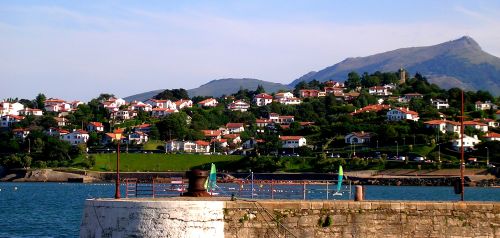
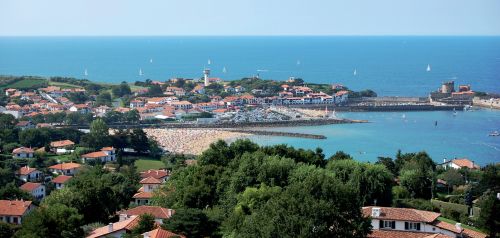
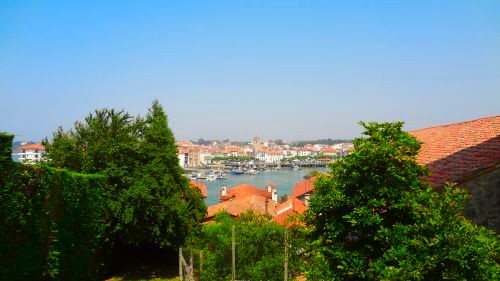
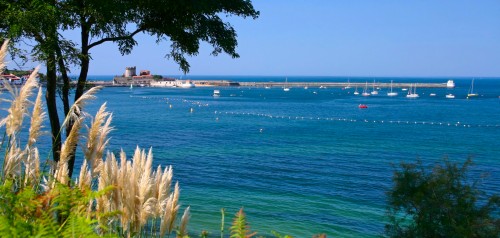
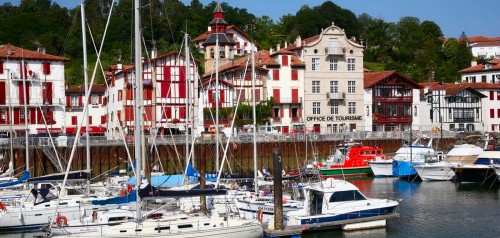
The town center of Ciboure is calm in comparison to its neighbor Saint Jean de Luz and yet only 1 km from the hustle of Saint Jean de Luz, Ciboure has a medieval background and old World charm dating back to the 13th & 14th centuries with a lot of historic monuments around the town, which includes the Church of Saint Vincent (built in the 16th century and the only church with a hexagonal tower in this part of France and where Maurice Ravel the composer was christened), the 17th century Fort of Socoa, the 14th century Tower of Bordagain, the Convent & Cloisters of Recollets and much later (1926) the Villa Leihorra built by the famous French architect Joseph Hiriart, which was classed as an historical monument in 1995.
Moving forward in time from the middle ages, Ciboure has a famous Son, Maurice Ravel the composer was born in Ciboure on March 7th 1875 to a Basque Mother and Swiss father.
In 1928 he wrote "Bolero" whilst inspired on holiday in Ciboure.
The
house of Maurice Ravel still stands today facing the fishing port of St Jean de Luz.
The principle Architecture here is all typical Basque.
Enjoy your visit!

